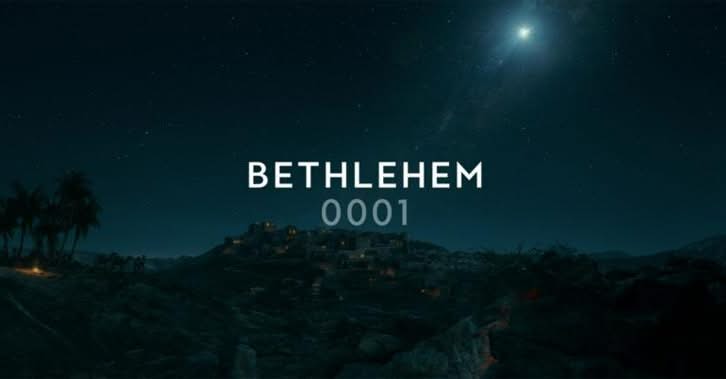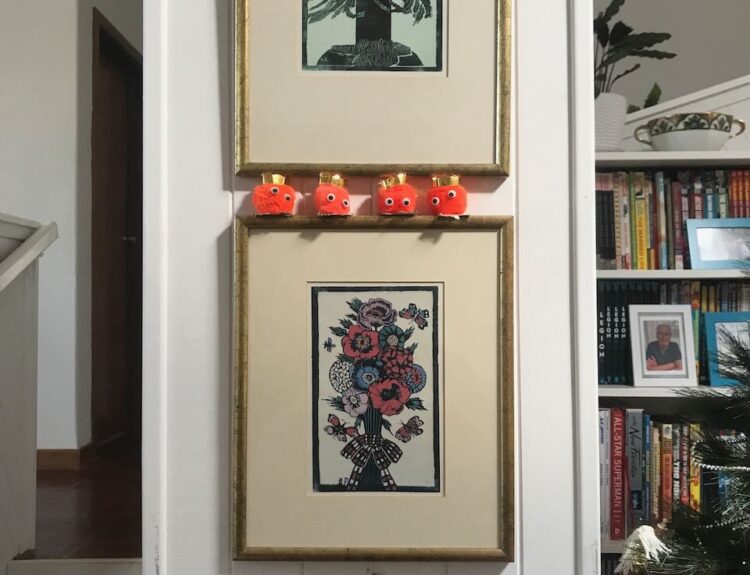The latest Doctor Who Christmas special was Joy to the World, produced by current showrunner Russell T. Davies but written by former showrunner Steven Moffat. It’s Moffat’s second script for Doctor Who in this most recent era, and if his comments are to be believed, possibly his last ever. Moffat has long been my favorite Doctor Who writer (even including the classic series), and Boom, his previous contribution, was by far the best episode of the most recent season of the show. So I was hopeful that we’d get another good one this time around.
And for first 50 minutes or so of this hour long special, I was pretty happy. Sometimes my expectations for Doctor Who can be pretty demanding, grumpy old fan that I am, but it really seemed like we had something that was ticking all the boxes that I want out of the series–it was fun, funny, emotional and full of interesting ideas and neat characters. There were a few bumps along the way but they were mostly manageable. But then the ending came along, and really tanked my enjoyment in a major way. On balance I’d say the episode was still pretty good, but it doesn’t rank anywhere near as high as I thought it was for a long time.
The premise is that the Doctor finds himself as a “Time Hotel”, which is a place in the distant future where people can travel through doors into the earth’s past in order to stay at some point in history. He starts following a creepy guy who is handcuffed to a briefcase, which turns out actually to be an ordinary (though doomed) guy handcuffed to (and mind controlled by) a creepy briefcase.

The briefcase goes from host to host, seeking people with greater access to the hotel’s systems, because it wants to get to the distant past so it can explode and become a star which can provided limitless energy for a weapon system in the present. Behind this plot is Villengard, the faceless weapons manufacturing organisation which Moffat has been talking about in his scripts since 2005, and which actually featured in Boom. The briefcase ends up connected to a modern woman named Joy (Nicola Coughlan) who is the episode’s principle guest star, and a lot of what follows is about her relationship with the Doctor and her finding some meaning through the circumstances that brings some healing to her troubled soul.
Of course, it also kills her, so there’s that. Joy ends up surviving as a kind of AI, which is an idea that Steven Moffat has previous explored, both in Boom and in the Silence in the Library two-parter which introduced River Song.

Anyway, for a lot of the episode I was quite enjoying things. The setting was unique and well-designed, the plot was breezy, the dialogue sparkled (a classic highlight of Moffat’s work) and Ncuti Gatwa is full of energy and fun to watch. There’s also nice work with the guest characters, even the really minor ones. You really felt sad when Trev died, for instance, even though he’d only been on screen for a few minutes.
An obvious highlight to the story is the year the Doctor ends up living in the hotel in 2024, alongside Anita, the lonely but seemingly unflappable manager. Anita is played by Steph de Whalley who is an actress I’m completely unfamiliar with, but she has a very warm dynamic with Ncuti Gate’s Doctor.

There is something very sweet about the Doctor just living in the hotel for a year, taking the time to do ordinary things and have a normal friendship. It’s nice that the episode spends so much time on this diversion, but the effect is a little odd because in many ways it’s the most emotionally affecting part of the story–generally, I liked Anita better than I liked Joy, and so it’s a little disappointing to leave her behind.
The part of the story that was a genuine let-down, however, was the ending. After spending the episode working so hard to save Joy from heartless machinations of Villengard, Joy just decides to take it on herself to let their evil plot carry on to its conclusion, allowing herself to be turned into a weapons-grade star. She does because she somehow knows that will be able to retain her identity and autonomy, and also have the ability to fly into space, so she doesn’t destroy the earth.

However, all of that is just huge assumption on the part of the character, and the part of the script. There’s no reason for Joy to think she would retain unfettered control over of her own will, or even gain the ability to leave earth if she does. And since the act is not framed as something she needs to do (say to save the planet or save the Doctor), it just comes across as capricious, and if not selfish, at least self-interested. She doesn’t have to do this, she just wants to, in order to give her life some meaning, and also to allow her to be with her mother forever as AI’s floating in space, or something.
There is the briefest acknowledgement that in doing all this, Joy allows Villengard to get exactly what they wanted (the star) something which the Doctor was keen to prevent (I assume at least). She hand-wavs this away by saying simply, “Villngard are nothing. We’re far beyond them now.” Now on one hand I sort of appreciate that–I do think that in light of eternity the evil that men and women do is going to end up being pretty insignificant. But the episode doesn’t do anything to justify as charitable a reading was that. It comes across more as a tacked-on afterthought to address an evil presence who were only there as a justification to get the plot moving.

Also, this whole ending serves to remove the Doctor from direct agency in the proceedings. This is not necessarily a bad thing, but it’s happened quite a few times in recent years. Watching that scene, my one daughter just flew up her arms and lamented why we can never just have the Doctor save somebody anymore. I know there are exceptions, but I do see her point.
So on the whole, it’s not a terrible episode by any means, and it might just be as good as any other Christmas special that Russell T. Davies ever produced (I really don’t like The Runaway Bride or The End of Time part 1, and I’m indifferent to Voyage of the Damned). But that ending was a let-down, and keeps the episode from ranking in the highest echelons of Steven Moffat’s Christmas work (for my money, the best ones are Last Christmas and A Christmas Carol, and all the others are good, even The Doctor, the Widow and the Wardrobe, which I think is a lot better than its reputation suggests). Even so, it on the whole represents a step up from most of the last series, and was certainly an enjoyable distraction over this Christmas season.

Other thoughts:
• A lot is made of the Doctor spending a year in the hotel with Anita as something the Doctor basically never does. But, the more attentive and continuity-obsessed fans amongst us know that he spent a few seasons just living on earth back in the era of the Third Doctor, he spent a year with Amy and Rory in The Power of Three, and he spent many hundreds of years on Trenzalore in The Time of the Doctor. And that’s not to mention the time he spent in “therapy” with Donna’s family as the Fourteenth Doctor, if we’re to accept the Fifteenth’s comments that he is benefitting from the healing that he experienced in that time.
• I think the “bootstrap paradox” idea with the Doctor knowing the right four-digit code because he heard himself say it is cheap writing. It’s breezy and fun, but it doesn’t make the Doctor knowing the code anything more than a lucky guess, which wouldn’t have been that hard to get around. The same is true of the other major time that the paradox was invoked in a similar manner, the mini-episodes Time and Space, but since those were just brief special episodes it’s easier to overlook. (Yes, there is also a big deal made out of the bootstrap paradox in Before the Flood, but I don’t remember the details of that very well and in that case I don’t think it had to do with an external piece of information which was completely unknowable by the Doctor, and thus was just sort of “invented” by the paradox).
• It’s hard for me to see the scene in the hospital, in which star-Joy visits her mother shortly before her death and zaps her away to be with her as some sort of floating AI’s in space, and not think, “Hmm, I think she just killed her own mother.” Obviously, that’s not how we’re supposed to see it, but that is kind of what happens. On top of that, everybody else afflicted with this star-energy disintegrates–is that what happens to Joy’s mother? How did the hospital explain that?

• I’m a Christian and a pretty “by the book” kind of one, so I wondered how I’d feel about the fact that the episode makes the Joy-star into the star that the Wise Men from the east follow when they visit baby (or young child) Jesus in the Christmas story. And I guess the answer is that I don’t mind since it’s all treated pretty positively and there’s nothing detailed in the Bible about that anyway. Of course, there are historical inaccuracies (the Wise Men wouldn’t have gotten there for some time after Jesus’ birth, for instance) and I’m pretty sure that the star didn’t continue to be seen throughout time up until 2020, but for the sake of a story that’s all fine. Actually, the idea that God told or guided Joy to take on the star-seed at the end is a more solid explanation for why she does what she does than anything that the episode told us, so maybe this actually improves the episode.



